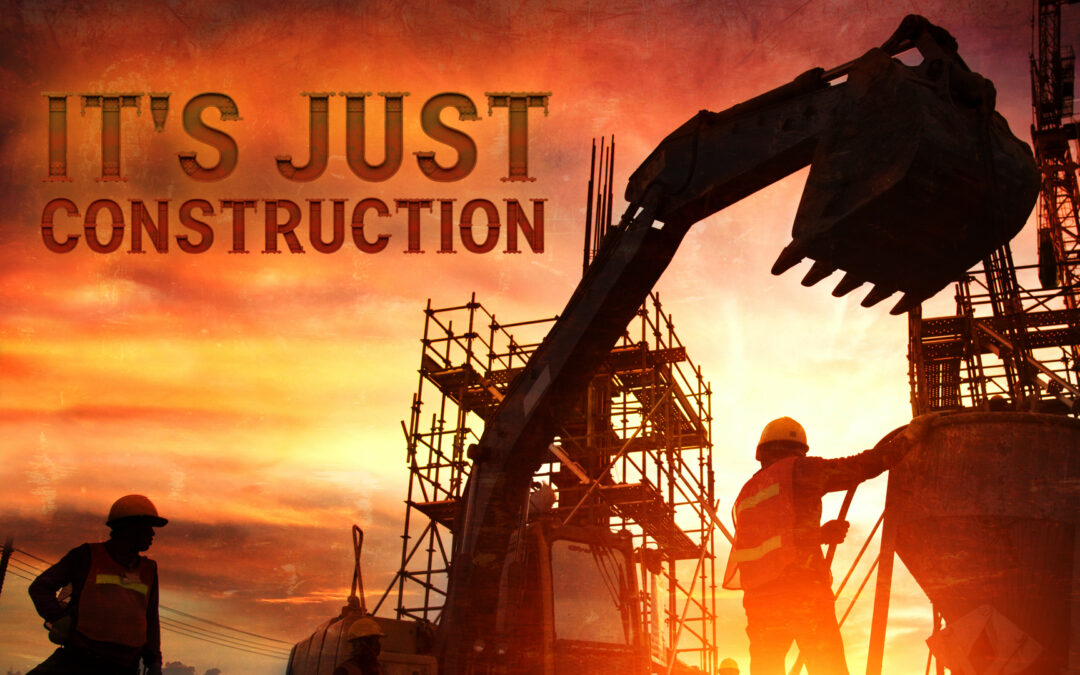In my book Construction Management Jumpstart, I dedicated a whole section to making the case for the contribution that construction makes to all of society. The section is entitled “It’s Just Construction.” In the section, I talk about how nothing exists without construction. There would literally be no housing, healthcare, transportation, education, recreation, worship, energy, commerce, manufacturing, etc. Thus, there would be no Nike athletic shoes, no iPads, no cell phones, no McDonalds restaurants, no Neiman Marcus department stores, no Disneyland, no Golden Gate Bridge, etc. Magnificent buildings such as the Walt Disney Concert Hall, or the Empire State Building, or the Guggenheim Museum of NY are readily connected to the architects who designed them but rarely, if ever, identified with the contractors who built them. But the fact is, that it’s not architecture until somebody builds it.
Part of the leadership challenge the construction industry faces is its ability to communicate the true value of what it brings to the marketplace. When you think about it, the story of construction and the impact it has on the way people live, work, and play is downright inspirational. Many of us got into the construction business in the first place because we wanted to do work that matters. I often tell people that when you are in construction, your work is on display every day for the whole world to see. It’s quite incredible to drive down a street and point to a building or a bridge that you and your team constructed, and tell your children, or grandchildren, that you built it. How many people get to create such lasting representations of their efforts—representations that will stand for decades, and even centuries.
Unfortunately, the tremendous influence that construction makes to every single city and community goes mostly unnoticed and certainly unappreciated. As an industry we have done a terrible job at promoting the significance of our contributions. Generally, the world doesn’t necessarily see what you and I might see when we look at our projects once they are completed and occupied. It amazes me how “taken for granted” construction workers are. And yet, I am inspired by the men and women whose blood, sweat and tears literally go into tying off every piece of rebar, laying every brick, or erecting every piece of steel to make some architect’s design come to fruition.
Construction is hard work, it’s dirty work, and it can be dangerous work. These are just a few of the reasons why construction is often given a bad rap. But I believe they should be the reasons why construction is appreciated, admired, and respected. The truth is, nothing in society would exist without the laborers, craftsmen and women, superintendents, project managers, estimators, safety engineers, and so many other individuals, who get up really early every morning, work in the hot sun and harsh winter temperatures, to fit, place, and form the 1000s of raw parts and pieces that make up the entirety of a new high rise, or hospital complex, or university campus. Yes, it takes brawn, but mostly brains, to construct today’s complex building systems. The ability to bring to life the physical manifestation of a building depicted in a 2-dimensional drawing or computer-generated image takes tremendous talent and expertise. But this talent and expertise is rarely, if ever, recognized.
It is time to set the record straight and create a new narrative about the construction business and the people who work in it. It’s time that we ourselves began to recognize the value we bring to communities and society overall. As I alluded to in blog post – It Is Broken, we have mastered the management side of the construction process. But expressions of true leadership, the kind that inspires and motivates and attracts respect, at least on the public front, are far and few between. Our reputation as an industry has suffered for decades. The significance of the services has been commoditized to the point where price alone, and worse yet, low price alone, is the criteria by which our value is judged.
As leaders of this industry, we need to craft a new story—a true story about what it is we do as constructors. We need to let people know how important our role is in the creation of our communities, and the difference it makes in the lives of the people who live in them. Just construction? I don’t think so.
*For more information on how you start to develop the leaders that are needed to transform your company and this industry, contact Barbara Jackson at [email protected]


Recent Comments